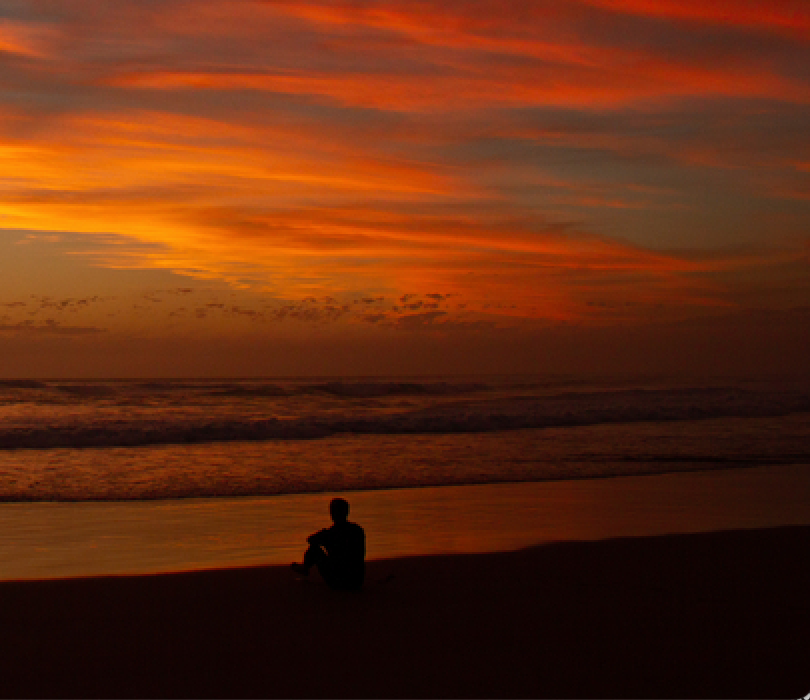Sustainable Sustainability: Self-Care for Corporate Sustainability Leaders

A lot of sustainability leaders could use some help to make their roles, well, sustainable. These can be hard times psychologically for corporate sustainability leaders. These are lonely jobs. Often they’re emerging roles, vaguely defined and not widely understood. You’re working on really tough topics: climate and the growing catalog of daily doom; ESG where you’re damned if you do/damned if you don't; DEI, rife with outrage and cynicism from all sides. Often there’s no peer inside your company who gets what you’re going through.
The overall theme is “sanity and growth”: be deliberate in the people and ideas you surround yourself with. There are very clear steps that can be taken. Think of this as a real, practical check-list to run down every month or two, not a vague “nice to have” that you put aside to consider in your down time that never seems to happen:
1. Foster Champions inside your company. You can’t do your job alone, and you can’t depend on one person – your boss or even the CEO – to carry the load. You need to identify, enlist and engage champions in key places across the business who will speak up for you and your programs – especially when you’re not in the room. Pay attention to current leaders but also invest in the people one and two steps down, who will be the next set of leaders soon enough. Especially if your current leaders are nearing retirement age.
2. Develop your peer support system outside your company. Find a quiet, safe space where you can talk honestly with other people who do get it. At least, you get to vent and get some sympathy. At most, you get some ideas on how to cope with all this. I’m partial to smaller, focused groups like GEMI and its Emerging Sustainability Leadership group than big conferences. (Full disclosure: I’m Senior Fellow with GEMI and have led that group for a few years.)
3. Find and listen to coaches/mentors wherever you find them. These are the people several steps (and usually years or even decades) ahead of you, who genuinely care about your development and your success, not just their own. Good ones are hard to find but can be life-changing. Sometimes, like with Champions, you have to do all the heavy lifting to identify, enlist and engage them. Other times, they’re trying to give you guidance and you have to just shut up and listen without being defensive. Be alert to finding your coaches and mentors in unconventional places: this post was prompted partly by great insights from one of my coaches, Glenn Frommer, (don’t blame him for what I write, please!), whom I met 25 years ago in Hong Kong when he was the client and I was a novice consultant.
4. Embrace new ideas, not just news. Connect with people who expand your thinking and challenge your ideas, not just the usual suspects who confirm or reinforce what you already think. Using whatever social media you can stomach, follow activists you don’t agree with and academics you can’t always understand. When people raise tough questions and challenge your thinking, listen rather than shutting them out. My thinking on climate change, for example, was totally opened up by engaging with people like sea level rise guru John Englander, academics like Liz Kozlov and Anne van Valkengoed, housing activist Oksana Mironova (who is also my daughter-in-law), and iconoclastic entrepreneur Jonathan Brun. These are not the “usual suspects” in the corporate sustainability world.
5. Be a coach/mentor. Get outside yourself, keep perspective, get energy and insights from those younger than you and earlier in their careers. It can be surprising how important this is even in your 30s, let alone in your 50s and 60s.
6. Ration the negative. Which applies both to people and news. How many times do you need to read about the same disaster – whether it’s a flood, storm, wildfire, melting glacier or House committee hearing? As wise man said recently, “If you’re drowning, don’t stop to read about water.”
7. Don’t forget to be in nature, not just about nature. At least once a week, put down the phone or tablet and just get the hell outside. Go walk where there’s something green. Mountains and water are good too. Leave the Airpods at home and maybe hear a bird or two. Breathe.
The metaphor of tending your garden can be a good reminder. You don’t wait for a break in your work to water your plants, you have to do it routinely. You feed your plants. Stakes and trellises are okay, supports that help them grow. Bees can be annoying and buzzy and even sting, but you need the pollinators who bring in something from outside to seed growth. And keep those negative weeds under control.
Keep this handy. Check it once a quarter or so to make sure you’re doing it. And if you know someone who needs it, pass it on. Help make sustainability sustainable.

Member discussion